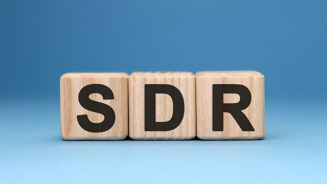According to Morningstar figures, the fund received less than 1% of GARS’s inflows (€30m) in November, even though the fund is in many respects an improvement compared to GARS, says Andrew Summers, head of fund selection at Investec Wealth & Investment. Although it is slightly more volatile, Summers points out the fund has less equity correlation than GARS.
“So although it’s got more risk, from a portfolio construction perspective it is good risk, because it’s less correlated to the rest of the portfolio,” he explains, adding: “It’s also doing a number of new strategies, more idiosyncratic strategies and more micro trades, which is interesting because it is an added source of alpha.”
Track record
So why do investors prefer to put all their eggs in the GARS basket, even though there are other attractive options available? It has got everything to do with the track record. Even Summers admits the long-standing track record of GARS (which was launched in 2008) gives him some comfort, which he can’t find in the newer kids on the block. Still, he is among the select group of investors who have invested in the SLI Global Focused Strategies fund this year.

Someone who has certainly not done so, is Alexandre Garrabou von Trotha (pictured left), head of fund-of-funds portfolios and fund selection at Banc Sabadell Inversion in Barcelona. He has a strict policy in place which practically excludes funds with a track record of less than three years to be even considered by his team. This is actually in line with what most fund selectors tell us when we ask them about the track record they require.
“We use three-year rolling windows in our quantitative analysis,” he explains. “If we were to use shorter time spans, it would be too difficult to separate good investment decisions from luck,” he adds. Little wonder that the multi-strategy fund of Garrabou’s choice is, you guess it, SLI GARS.




